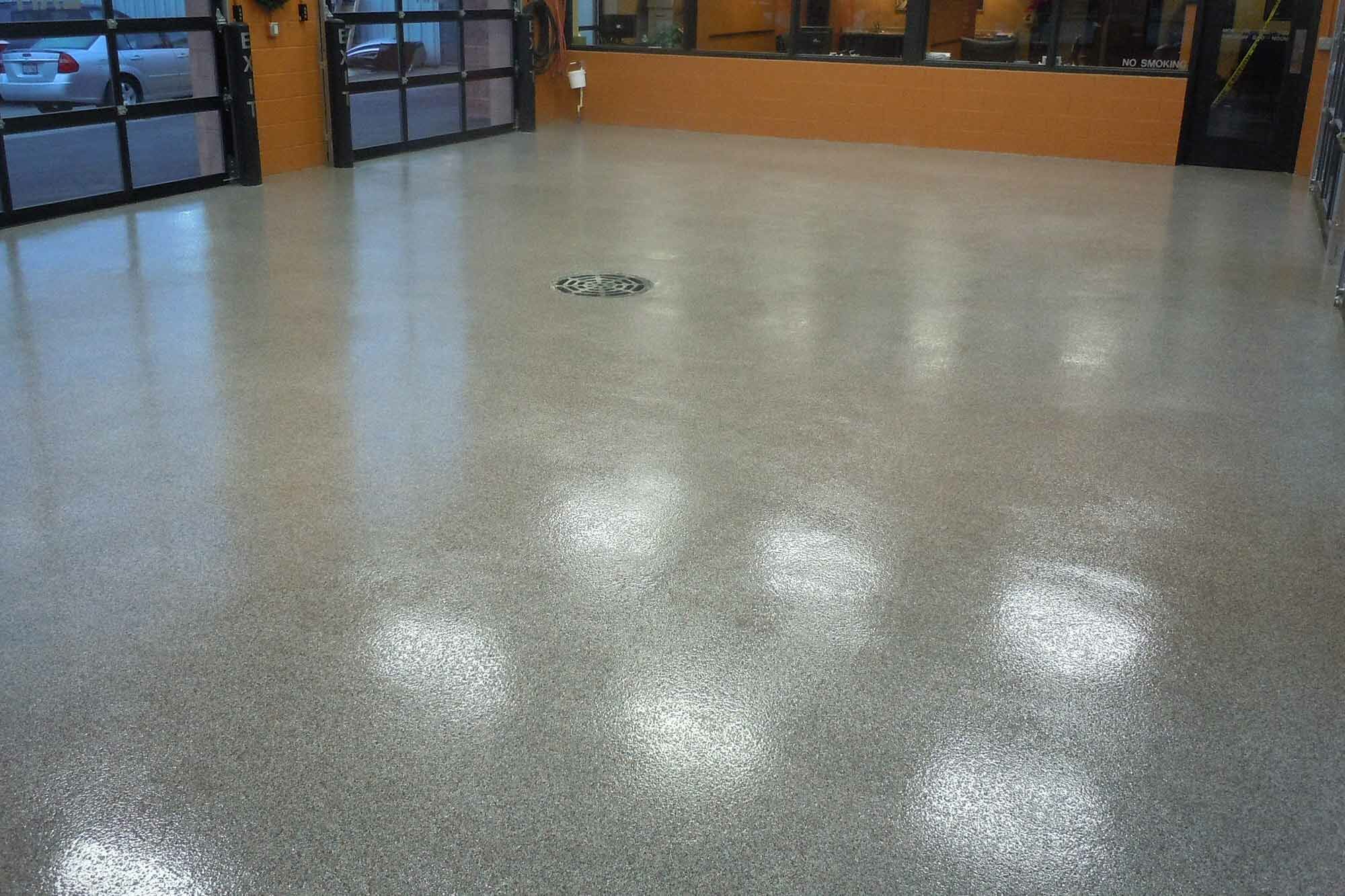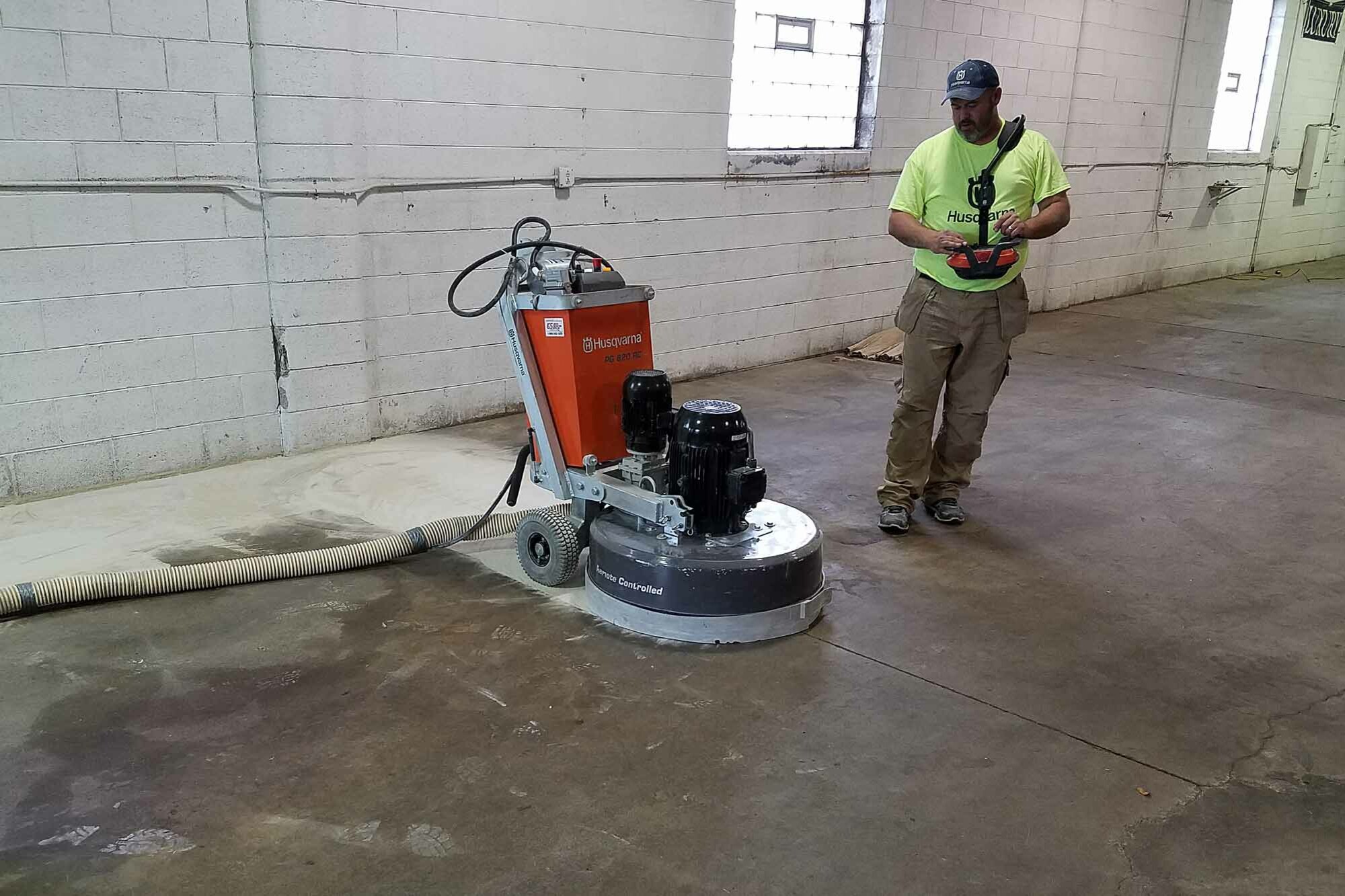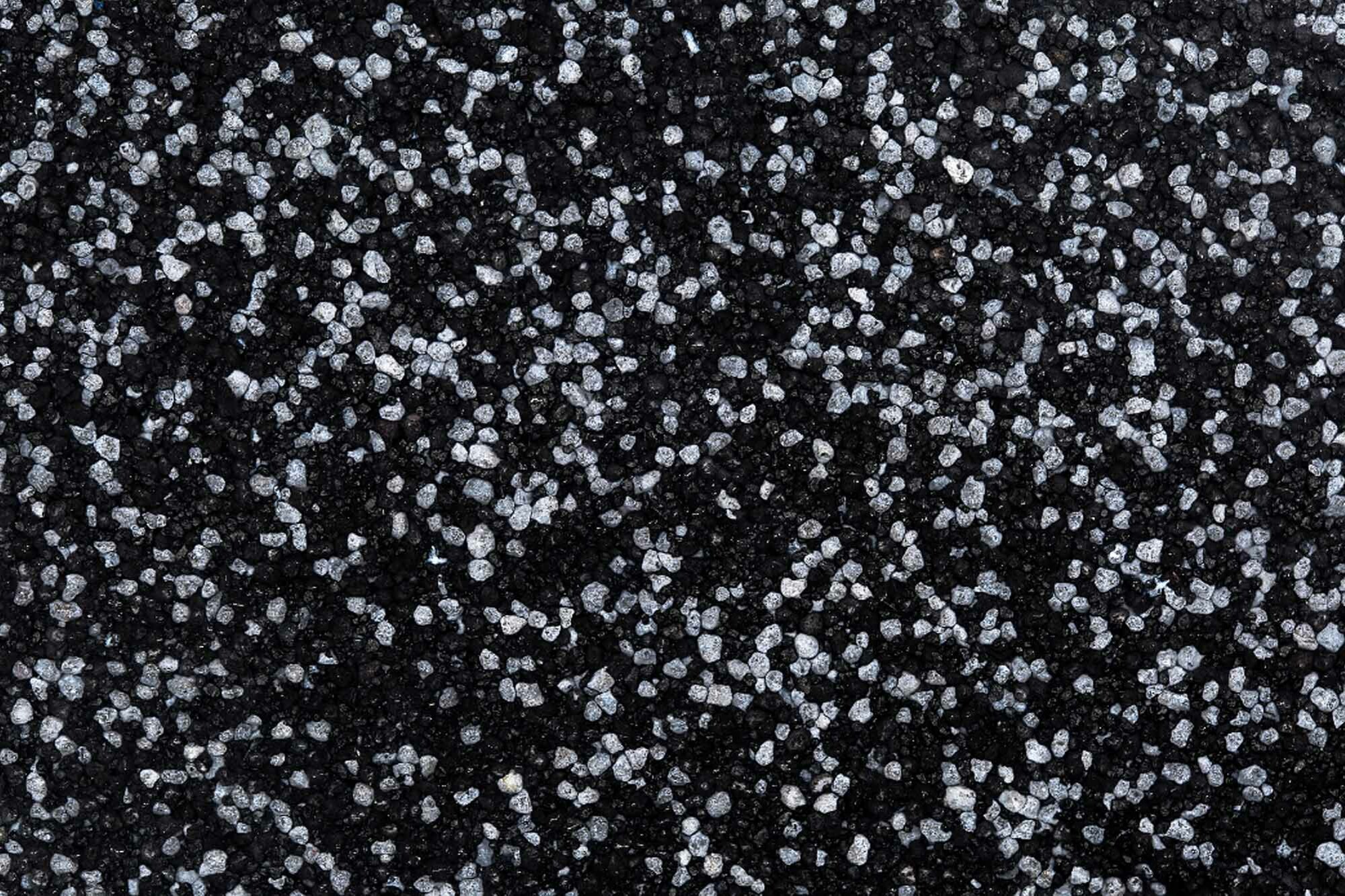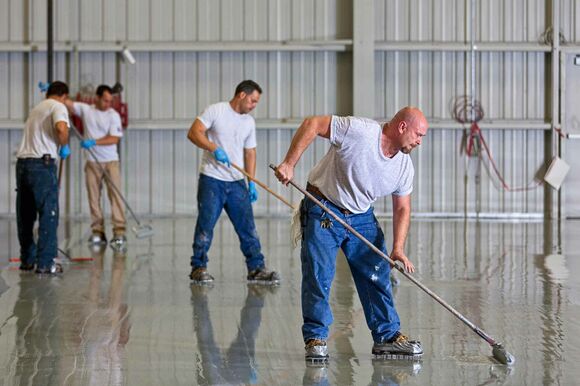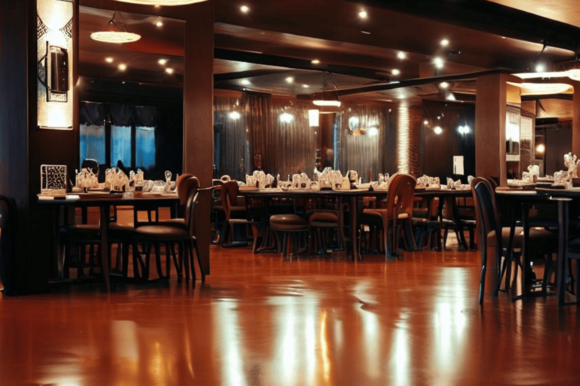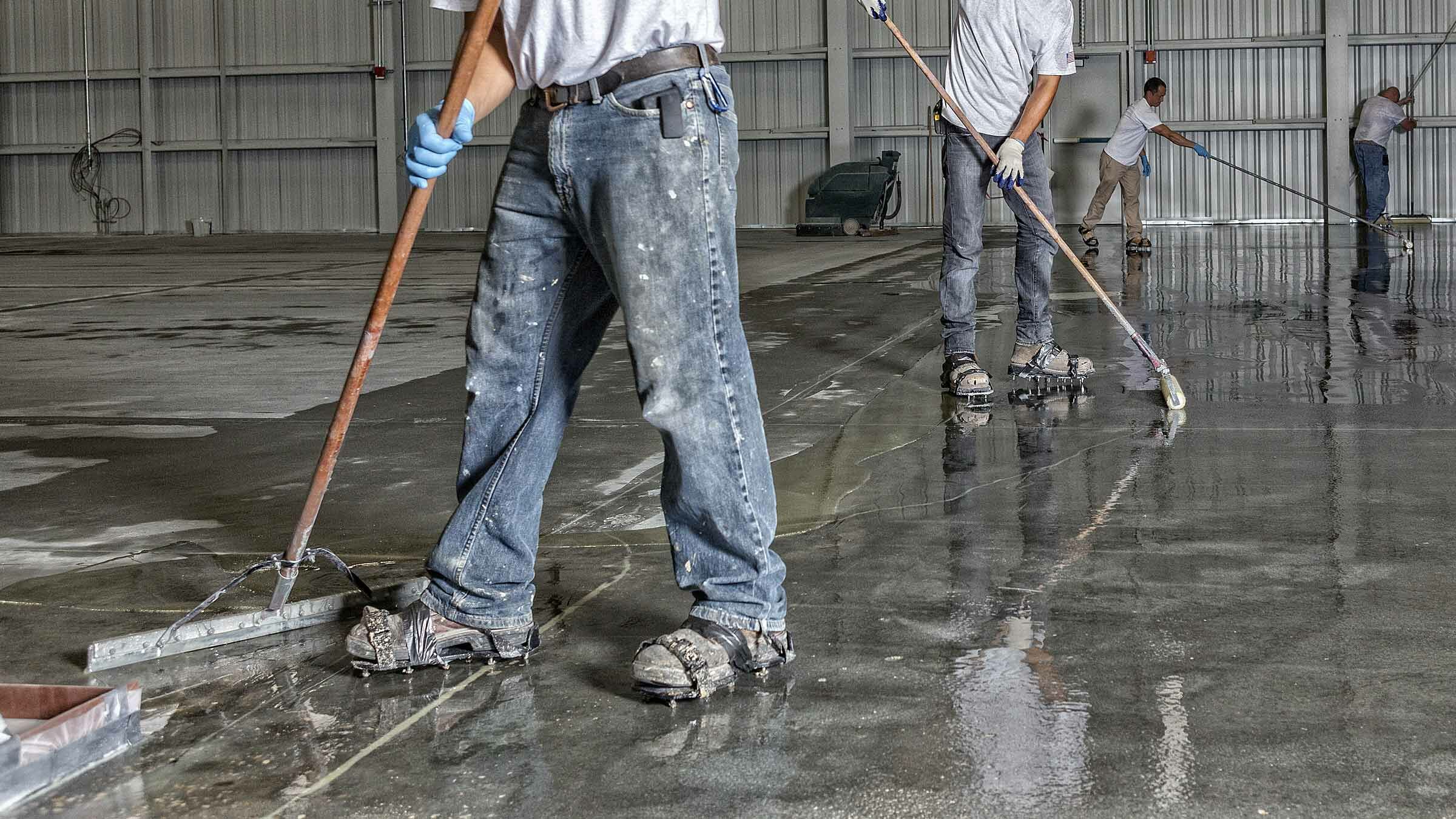Commercial, Industrial, Institutional Flooring
Epoxy floors and Polished concrete are both frequently used flooring solutions in industrial, institutional and commercial facilities. It is not uncommon to struggle with choosing the floor system that’s best for your business. While both options have advantages, they tend to work better in different environments. At Creative Maintenance Solutions, we’ve compiled the following list to help you make an informed concrete flooring decision.
The Process
Both polished concrete and epoxy floor coatings use a concrete slab foundation. From there, the process is drastically different.
Polishing machines grind out minor blemishes and stains on the surface of your concrete exposing differing sized aggregates based on the customers' requirements. Adding a concrete hardener to the surface strengthens and densifies the concrete. After this dries, polishing resumes using progressively finer grinding diamonds. Once the specified gloss level is reached, adding a repellent will protect against oil and water damage. (see video at end of the article below)
Applying an epoxy flooring system consists of mixing an epoxy resin with a hardener. This two-component resin is then applied, often in multiple layers, to existing concrete as a top coat — the chemicals cure, forming a thick, protective coating. The coating adheres well to concrete adding protection from stains, abrasions, and water.
Comparing the Advantages
- Ease of Maintenance:
- Maintain epoxy floors with water and a combination of detergents.
- Use a microfiber pad to remove dust and debris from polished concrete. Use water to mop. If shine is lost, use an auto scrubber or polished concrete solution.
- Longevity:
- The lifespan of epoxy coatings varies depending on the thickness of the application and the amount of vehicular traffic it endures. Epoxy floor coverings can last for many years. In commercial and industrial environments, the key to longevity is selecting an epoxy floor system that meets the demands of your environment.
- Professionally installed polished concrete generally lasts for many years. Refurbishing may be required at that time. Since there are different levels of polished concrete, this may vary. The cost of refurbishing concrete is less than the original project.
- Resistance:
- Corrosive compounds found in laboratories, food and beverage facilities, and commercial and industrial warehouses can stain and damage concrete. Epoxy floor coatings resist chemicals, acids, and alkalis.
- Polished concrete, on its own, is not chemical resistant. However, additives are available to create a chemical resistant seal for accidental spills. That said, polished concrete wouldn't be recommended in an environment exposed to harsh chemicals, acids, and oils.
- Safety:
- Epoxy flooring reflects light up to 70%, enhancing visibility. They are also slip-resistant and seamless, minimizing accidents and falls.
- Polished concrete reflects light by 100% and is thermal shock resistant, minimizing cracking and deterioration. Concrete floors do not contain Volatile Organic Compounds (VOCs), making them safe for the environment.
Our Milwaukee-based company has a national reputation for first-class safety and concrete flooring options. Our skilled technicians provide high-quality floor coverings, expert installation and excellent solutions for all of your concrete needs.
FROM CMS TRAINING VIDEO SERIES
POLISHED CONCRETE TRAINING - CMS VIDEO SERIES
Contact Creative Maintenance Solutions today to request a concrete flooring project assessment.
